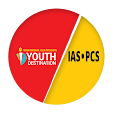In this article, we will delve into the factors to consider and help you understand when it is best to embark on your UPSC journey. If you aspire to join the esteemed civil services in India, preparing for the Union Public Service Commission (UPSC) examination is a crucial step. However, determining the right time to start your UPSC preparations can be a challenging decision.
Before diving into the timing of your preparations, let's first grasp the significance of the UPSC examination. The UPSC conducts this prestigious examination to recruit candidates for various civil services positions, including the Indian Administrative Service (IAS), Indian Police Service (IPS), and Indian Foreign Service (IFS). Clearing the UPSC exam opens doors to a rewarding and influential career in public service.
Eligibility Criteria
To be eligible for the UPSC examination, you need to meet specific criteria. Firstly, you must hold a bachelor's degree from a recognized university. The educational qualifications differ depending on the chosen service. Secondly, there is an age limit that varies for different categories. It is important to carefully review and understand these eligibility criteria before commencing your preparations.
Exam Pattern
The UPSC examination consists of three stages: the Preliminary Examination, the Main Examination, and the Interview (Personality Test). The Preliminary Examination is the first hurdle, comprising objective-type questions to test your general knowledge and aptitude. The Main Examination is a comprehensive written examination that evaluates your subject knowledge and analytical abilities. Finally, the Interview assesses your personality traits and suitability for the civil services.
Choosing the Right Time
One of the critical questions aspiring candidates often face is when to start their UPSC preparations. The answer to this question varies based on personal circumstances and individual preferences. However, let's explore a few factors that can guide your decision.
Graduation or after?
Many candidates contemplate whether to start their preparations during graduation or after completing their degree. While both approaches have their merits, starting after graduation allows you to dedicate your full attention to the exam without the burden of academic commitments. However, some candidates prefer to begin their preparations during graduation, using their time effectively to cover the syllabus alongside their college studies.
Factors to Consider
When determining the right time to begin your UPSC preparations, consider factors such as your academic background, the time you can allocate daily for studies, and your familiarity with the syllabus. Assess your strengths and weaknesses, evaluate your commitment level, and determine the resources at your disposal.
Time Management
Preparing for the UPSC examination requires effective time management. Balancing your studies with other activities is essential to prevent burnout and maintain a healthy routine. Allocate dedicated study hours each day, create a study plan, and set achievable goals. Prioritize your tasks, avoid distractions, and maintain consistency to make the most of your study time.
Creating a Study Plan
A well-structured study plan is crucial for UPSC preparations. Break down the vast syllabus into manageable sections and allocate specific timeframes for each topic. Create a timetable that suits your daily routine and follow it diligently. A study plan will not only ensure comprehensive coverage of the syllabus but also help you track your progress and identify areas that require additional focus.
Selecting Study Material
Choosing the right study material is paramount for effective preparation. Refer to standard textbooks recommended for the UPSC exam and gather relevant study material from reliable sources. Make use of online platforms, UPSC preparation websites, and previous years' question papers to enhance your understanding of the exam pattern and question types.
Joining Coaching Institutes
Many aspirants opt to join coaching institutes to receive professional guidance and mentorship during their UPSC preparations. Coaching institutes provide expert faculty, structured study material, and a competitive environment. Evaluate your requirements and consider enrolling in a reputable coaching institute if you believe it will enhance your preparation.
Self-Study vs. Coaching
Deciding between self-study and coaching is a personal choice. While coaching institutes offer guidance and a structured approach, self-study allows for flexibility and self-paced learning. Assess your learning style, time availability, and financial constraints before making a decision. Remember, self-discipline and consistency are crucial factors regardless of the path you choose.
Effective Study Techniques
Employing effective study techniques can significantly boost your preparation. Adopt methods like note-making, mind mapping, and regular revision to reinforce your understanding of concepts. Practice solving previous years' question papers and take mock tests to familiarize yourself with the exam format and improve your time management skills.
Staying Motivated
UPSC preparation is a long and challenging journey. It is essential to stay motivated throughout the process. Set short-term and long-term goals, celebrate small achievements, and maintain a positive mindset. Surround yourself with a supportive network of fellow aspirants or mentors who can provide guidance and encouragement during tough times.
Conclusion
Deciding when to start your UPSC preparations is a crucial step towards achieving your goal of becoming a civil servant. By considering factors like personal circumstances, academic background, and time management, you can determine the ideal time to embark on this journey. Remember to create a study plan, choose the right study material, and stay motivated throughout the process. With dedication, perseverance, and effective preparation, you can increase your chances of success in the UPSC examination. If you looking for UPSC Coaching visit our Website.




.png)
















0 Comments